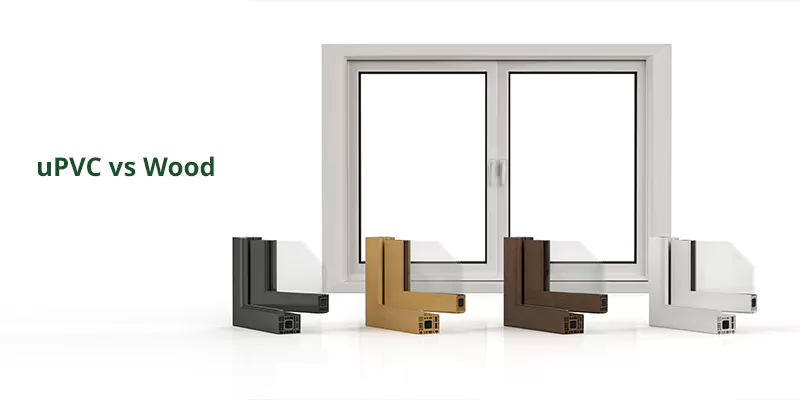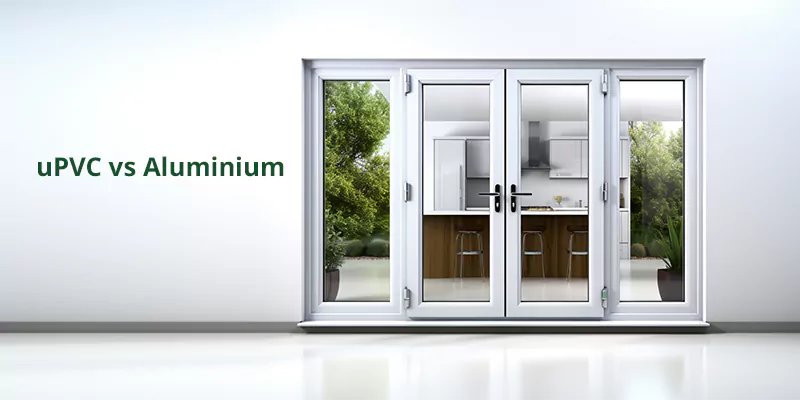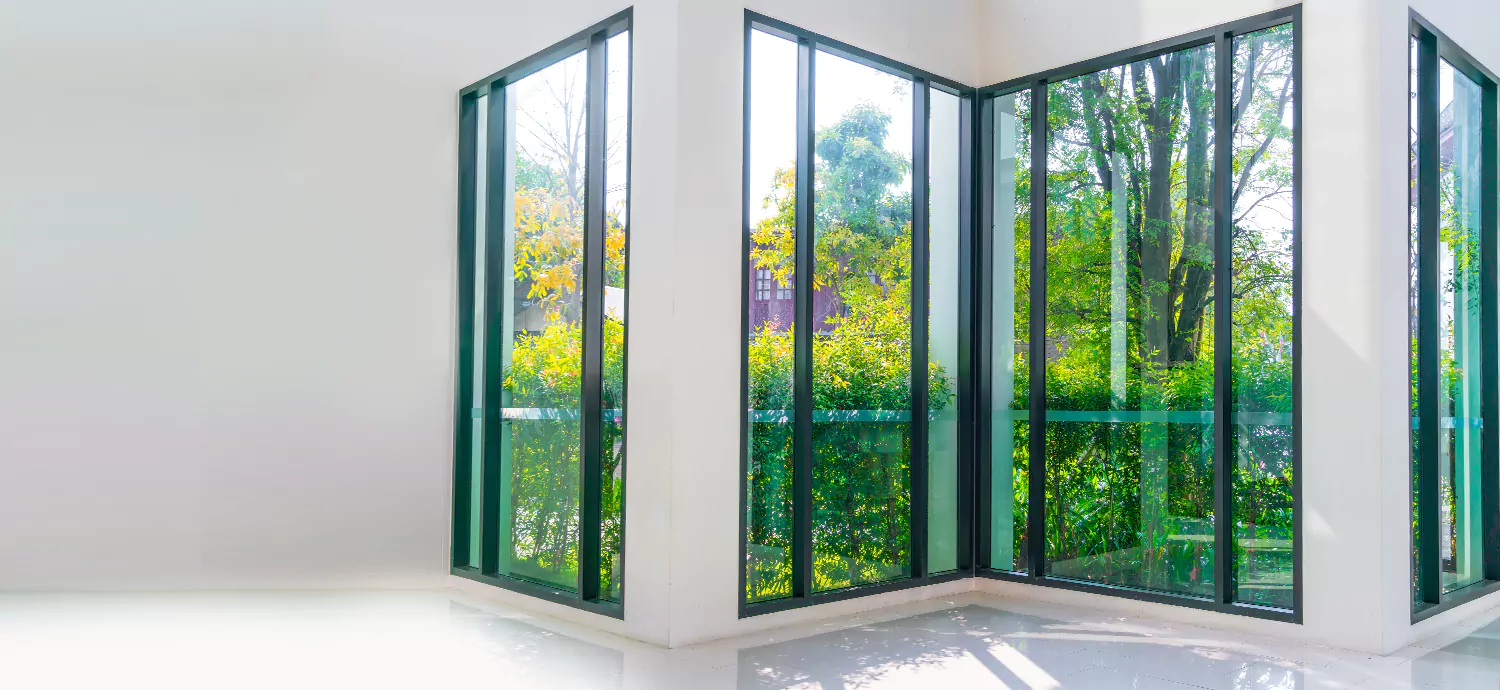Introduction to Benefits uPVC Sustainability
Benefits of uPVC sustainability in construction have become essential as the global focus shifts toward reducing environmental impact. uPVC (unplasticized polyvinyl chloride) is now a key material in eco-friendly buildings, especially for windows and doors. Known for its durability and energy efficiency, uPVC offers significant advantages over other materials, making it a popular choice for long-lasting, sustainable window frames.
What is UPVC sustainability
Unplasticized polyvinyl chloride, sometimes known as uPVC, is stiff plastic manufactured without the use of plasticizers. uPVC is extremely durable and requires little maintenance, which is why it is used in the building industry to manufacture windows, doors, and pipes. uPVC is made from unplasticized polyvinyl chloride polymer, which makes use of PVC’s elasticity to create a unique combination.
As a window frame material, uPVC provides unrivaled quality and numerous benefits, including energy efficiency, durability, and design versatility. Because pigments are integrated into the profile, uPVC window frames do not flake, fade, warp, or require regular painting. Installation of uPVC windows is also quite uncomplicated, carried out by specialists without disrupting your regular routine.
The recyclability of uPVC also supports a circular economy, where materials are reused instead of being discarded after one use. This significantly reduces the environmental impact associated with extracting and processing raw materials, making uPVC recyclable windows an important part of sustainable construction.
Why Sustainability Benefis Matters in Construction
The construction sector is one of the largest contributors to carbon emissions worldwide. Sustainable building materials are essential to minimize this impact. They reduce resource consumption, lower energy usage, and promote recycling. Choosing materials like uPVC can make a significant difference, contributing to energy efficiency and reducing a building’s overall carbon footprint, as highlighted by the U.S. Green Building Council.”
Key Benefits of uPVC Sustainability
Environmental Benefits
One of the standout advantages of uPVC is its minimal environmental footprint. The production process consumes less energy compared to other materials, and uPVC products can be recycled multiple times without losing integrity. This circular lifecycle reduces landfill waste and conserves natural resources.
Long Lifespan and Low Maintenance
uPVC windows have a lifespan of up to 50 years, far exceeding traditional materials like wood. They resist rot, corrosion, and UV damage, reducing the need for replacements. Additionally, uPVC windows require minimal maintenance—no painting or varnishing needed—further lowering their environmental impact.
uPVC vs Wood: Sustainable Benefits for Window Solution

Wooden windows offer a timeless charm and natural beauty that can enhance any room. However, the maintenance required for wooden window frames is significant, including painting, sealing, and moisture-proofing. On the other hand, uPVC sustainability stands out due to its resistance to rot, bugs, and weathering. Furthermore, uPVC recyclable windows contribute to a more sustainable environment by being fully recyclable at the end of their life cycle. uPVC energy-efficient windows also provide excellent thermal and sound isolation, which can further reduce energy consumption and environmental impact. Moreover, you can protect your uPVC windows from insects by installing mesh, which adds another layer of sustainability to the material.
uPVC vs Vinyl: Sustainable Benefits for Window Material Choice
Both uPVC energy-efficient windows and vinyl windows offer durability, low maintenance, and long-lasting performance. However, uPVC is generally considered to be of higher quality due to its structural strength, making it more resistant to impact and providing enhanced security. Additionally, uPVC recyclable windows are more durable, offering long-term environmental benefits with a reduced carbon footprint. uPVC energy-efficient windows are better at insulating the interior from outside noises, unlike vinyl windows, which may be more prone to discoloration over time. Even though vinyl windows come at a lower initial cost, uPVC window frames provide superior long-term performance and contribute to sustainable building materials, making them a better long-term choice for the environment.
uPVC vs Aluminum: Sustainability and Performance

Both uPVC and aluminum windows are recognized for their strength and energy efficiency. However, uPVC sustainability takes the lead due to its excellent insulating properties. uPVC energy-efficient windows reduce heating and cooling costs by minimizing energy transfer, leading to a reduced carbon footprint uPVC. While aluminum windows are sleek and contemporary, uPVC window frames often offer better overall performance in terms of insulation and environmental impact. uPVC recyclable windows are also a more sustainable choice, as they can be fully recycled, whereas aluminum may not have the same level of recyclability in all areas. If you’re looking to prioritize long-term sustainability and energy efficiency, uPVC windows are the superior option for modern homes.
uPVC and a Smaller Carbon Footprint
To reduce the carbon footprint, it’s best to opt for uPVC. uPVC windows are highly energy-efficient, which makes them generate lower and less greenhouse gas emissions from heating and cooling systems. Additionally, since uPVC can be recycled, making new products from recycled uPVC uses up to 50% less energy than producing new uPVC.
uPVC is also incredibly durable, lasting longer than wood and aluminum, which reduces the need for frequent replacements. This longevity helps minimize waste and the environmental impact associated with producing new materials.
uPVC in Sustainable Building Materials and Practices
Namo uPVC windows are recyclable in nature, energy efficient windows, and low maintenance requirements make it an excellent choice for green construction. Sustainable building approaches aim to reduce environmental effects by maximizing resource efficiency, eliminating waste, and employing eco-friendly materials. As a sustainable building material, uPVC is the ideal way to go.
In addition to windows and doors, uPVC is utilized in a variety of building applications, including pipes, cladding, and roofing materials. Because of its adaptability, uPVC can be used in a variety of architectural design applications, contributing to the project’s overall sustainability.
Conclusion: Why uPVC Windows are the Top Sustainable Choice
When comparing uPVC windows to those made from other materials, it’s clear that uPVC stands out. Its sustainability, durability, and energy-efficient properties make it a leading choice for both residential and commercial buildings. uPVC recyclable windows offer excellent insulation, making them ideal for reducing energy costs and environmental impact. Whether for homes or offices, uPVC energy-efficient windows are a smart investment that provides long-term performance.
At NAMO, we specialize in uPVC window and door installation, providing exceptional, high-quality solutions for over 10 years. Our wide range of products, from casement windows to French windows, is designed for sustainable building materials and guaranteed durability.
For the best in uPVC sustainability and professional service, trust NAMO for all your uPVC window and door needs. Get in touch with us today to learn more about our world-class products and services.
If you’re looking for a trusted company that can deliver high-quality and affordable uPVC sustainability benefit solutions combined with exceptional customer service, then NAMO is the right partner for you. Get in touch with the NAMO Organization today to learn more about our premium uPVC windows and services.

